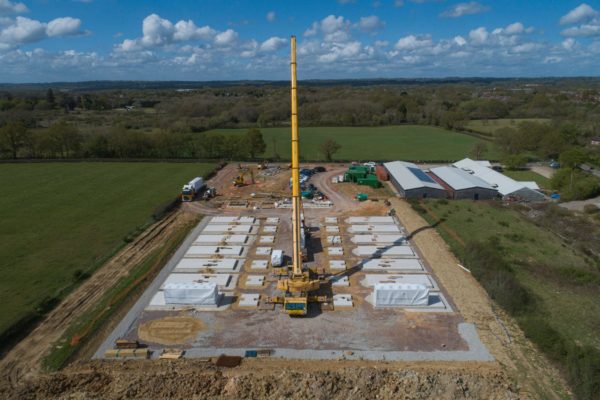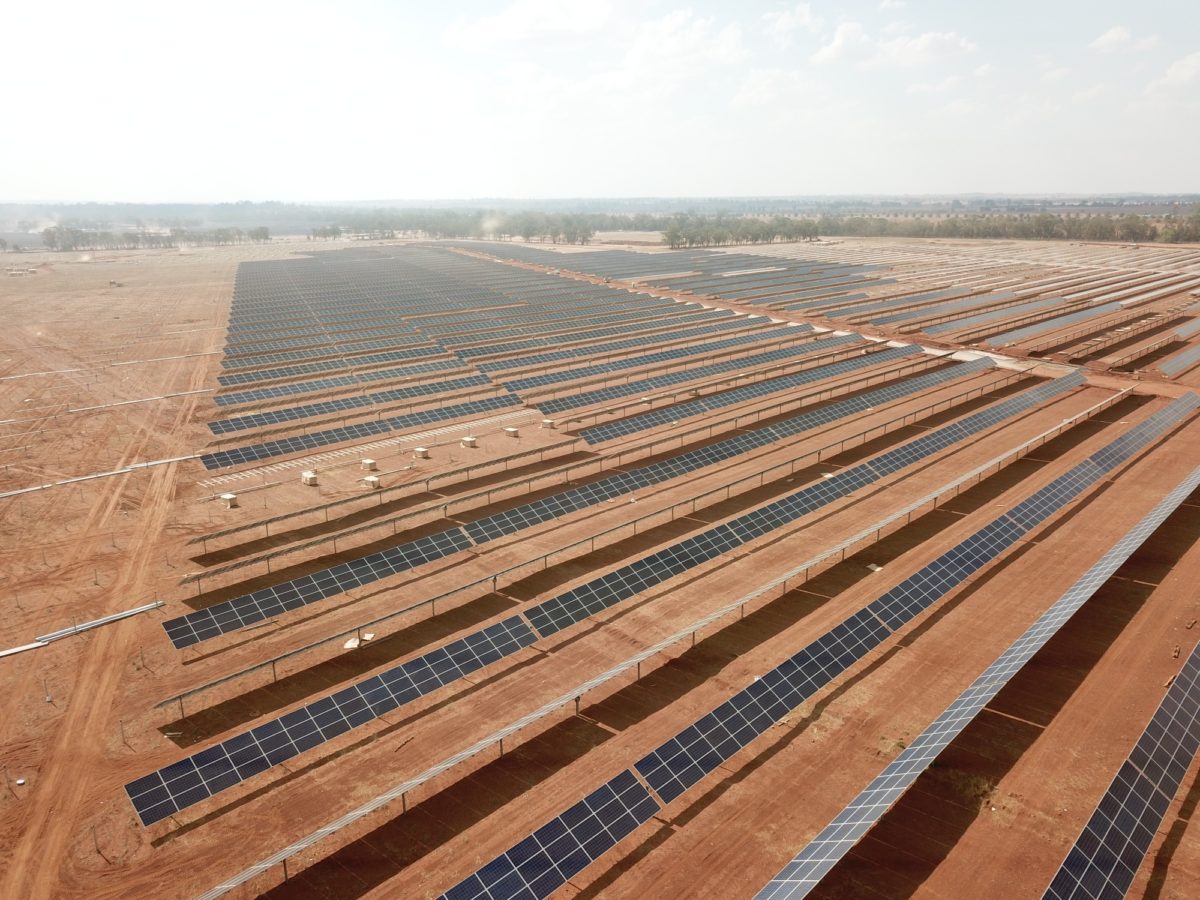Fotowatio Renewable Ventures (FRV) has confirmed work has begun on its $60 million Dalby Hybrid Power Plant which will comprise 2.4 MW of solar PV capacity and a 2.5 MW/5 MWh battery, making it the first battery energy storage system (BESS) the company has developed in Australia.
FRV, a wholly owned subsidiary of Abdul Latif Jameel, said the plant’s output will be connected to Ergon’s distribution network, allowing it to supply and take electricity from the grid and trade in the National Electricity Market (NEM).
FRV Australia managing director Carlo Frigerio said the hybrid facility is designed to be operated as a predictable and dispatchable generation plant, providing a reliable energy output to Queensland customers.
“Battery energy storage systems are needed to support further investment in Queensland renewables and help maintain system security and reliability,” Frigerio said.
“This project will be critical to Queensland’s future energy supply and security as renewable energy capacity increases, with storage supporting solar and wind power coming into the market when it is most needed.
“The inclusion of PV as part of the project shows the importance of integrating solar and batteries in order to deliver dispatchable power.”
Spanish EPC contractor Gransolar Group (GRS) has secured the contract to build the Dalby Hybrid Power Plant.
GRS Australia managing director Carlos Lopez said the plant will have the ability to access the maximum number of markets and revenue streams, including arbitrage and frequency control ancillary services (FCAS).
Lopez said while the Dalby facility is Gransolar’s first hybrid project, the energy management system has been tested in different electricity systems and is capable of operating under different grid codes and providing different applications such as energy arbitrage, ancillary services and/or microgrid control.
“The Dalby Hybrid Power Plant is a very interesting and promising project for the Gransolar Group,” he said.
Construction of the project is scheduled to be completed in December with the facility expected to be fully operational by early 2022.
FRV global managing director Felipe Hernandez said the Dalby project is part of the company’s long-term investment plan to develop energy storage projects globally.

Image: FRV
“FRV is already collaborating with governments, regulators, and partners around the world to lay the foundations for a new energy model,” he said.
“Energy storage will play a central and critical role to fully realise the power of renewable energy, and FRV acknowledges the value of this technology as a key element to achieve a decarbonised society.”
The Dalby Hybrid Power Plant is FRV’s ninth project in operation or under construction across the NEM, including the 125 MW Lilyvale Solar Farm in Queensland, the 106 MW Winton Solar Farm in Victoria, and the 69.75 MW Goonumbla Solar Farm in New South Wales.
FRV has also achieved financial close on the 115 MW Metz Solar Farm, commenced construction on the 90 MW Sebastopol Solar Farm, and continues to develop the 300 MW Walla Walla Solar Farm, all in NSW.
The Dalby Hybrid Power Plant is among a raft of battery energy storage systems planned for Queensland as the state government looks to continue its transition to renewable energy.
The 100 MW/150 MWh Wandoan South BESS project, being developed by Singapore-based Vena Energy, is nearing completion with connection to the transmission network now in the final stages.
The state-owned energy company Stanwell is progressing plans to develop a 150 MW/300 MWh battery adjacent to the 1.4 GW Tarong Power Station site near Nanango in the South Burnett while the state government has announced plans to install five large-scale, network-connected batteries, with a combined capacity of 40 MWh in regions across the state as part of a community battery trial.
This content is protected by copyright and may not be reused. If you want to cooperate with us and would like to reuse some of our content, please contact: editors@pv-magazine.com.









2 comments
By submitting this form you agree to pv magazine using your data for the purposes of publishing your comment.
Your personal data will only be disclosed or otherwise transmitted to third parties for the purposes of spam filtering or if this is necessary for technical maintenance of the website. Any other transfer to third parties will not take place unless this is justified on the basis of applicable data protection regulations or if pv magazine is legally obliged to do so.
You may revoke this consent at any time with effect for the future, in which case your personal data will be deleted immediately. Otherwise, your data will be deleted if pv magazine has processed your request or the purpose of data storage is fulfilled.
Further information on data privacy can be found in our Data Protection Policy.